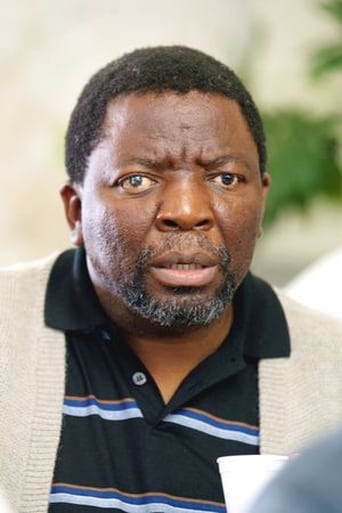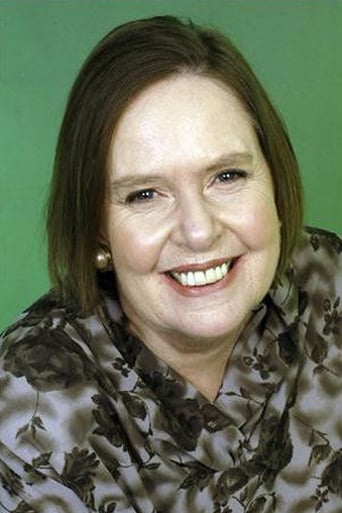VividSimon
Simply Perfect
UnowPriceless
hyped garbage
Matrixiole
Simple and well acted, it has tension enough to knot the stomach.
Arianna Moses
Let me be very fair here, this is not the best movie in my opinion. But, this movie is fun, it has purpose and is very enjoyable to watch.
paulclaassen
I'm sorry, I just don't appreciate it when cultural differences are thrown in your face. What could potentially have been a wonderful movie is ruined by the desperate urge to be ever-so-South African
MartinHafer
"Fanie Fourie's Lobola" is a wonderful little film and it's fitting I was picked to review this South African film because I just returned from a lengthy trip to the country—my second trip in the last two years. I love South Africa and think it's one of the best places on the planet to visit. So, not surprisingly, I try to watch as many South African films as I can—especially romantic-comedies. This film is about an interracial couple who want to get married. Fanie is the Afrikaner guy who's fallen in love with Dinky, a Zulu. Nowadays, such a marriage is becoming more and more common in South Africa. Up until about 20 years ago, such a marriage was illegal and might have sent the couple to prison! But now, the country is enjoying a certain level of acceptance for such relationships—though the cultural differences are massive and go far beyond color! He speaks Afrikaans—a variant of Dutch that's been spoken by white settlers since the 17th century. She speaks Isizulu. And, the film is in both languages as well as English. In fact, the country has 11 different official languages—so don't be at all surprised by all the subtitles! And, the differences are greater yet—which you'll discover when you see the film.While Fanie and Dinky's families are having a hard time accepting this marriage, there also is a cultural problem Fanie didn't anticipate…the lobola. This is a dowry that the groom must pay the bride's father in order to get his permission. In the film, Dinky said this felt like Fanie had to BUY her—but the father insists on doing things the old fashioned way. Much of my recent trip was spent in the KwaZulu-Natal region—where Zulus predominate. And, like you'll see in the film, folks STILL often complete the lobola by securing permission with cattle as opposed to money! You didn't know you were going to get a little cultural lesson in my review, did you? Well I mention all this because you should understand about these customs, as what you are seeing in the film still is widely practiced today.There is one problem with the lobola, however. Fanie is a struggling artist and like most struggling artists, he's poor…very poor. And, a slick and handsome black man, Mandla, has already offered the lobola for Dinky's hand—and he's quite wealthy. What is the very nice but somewhat nerdy Fanie to do? How can he provide for the lobola and get the woman of his dreams?!The film has an awful lot to like. The acting is wonderful (particularly by Zethu Dhlomo as Dinky), the writing also very engaging and sweet (you might want to watch it with a few Kleenex tissues nearby) and the film is a perfect date night film. And, if you like this nice film, I also recommend you try "White Wedding"—another terrific recent export from South Africa.By the way, if you care, here are a few more cultural tidbits you might like to know before you see the film. White South Africans rarely venture into the black townships where Dinky lived in the film. While this is changing a bit, most of the whites you see in these places are tourists from other countries—folks like me. Also, when Fanie wears a South African rugby shirt and later takes her to a rugby match, this is a very white South African thing to do. While there are some excellent black players finally playing for the team, up until more recently it was an all-white sport with only white fans. Black South Africans, conversely, are much more into soccer—and yes, they call it soccer in South Africa—just like us Americans. Also, in the scene at the rugby match where Fanie is supposed to pay the black men standing around in the parking lot, this is an odd custom I couldn't quite get used to. This is the case in many places—airports, malls, restaurants. These mostly young entrepreneurs are paid to keep an eye on your car. Some say it's really like insurance to make sure these same guys don't mess up your car and some see this as a very natural South African thing. Finally, Fanie's brother, Chris Cameleon, is a relatively famous guy in South Africa for his singing—and I really enjoyed his song that ended the movie—it was VERY catchy.If you see the film, drop me a line and let me know what you think. Enjoy.
patrienkie
I started watching this movie late at night, confusing it with another movie I've seen parts of, also involving an interracial marriage. I have to admit, I'm not much of a fan of Afrikaans movies, even though I am Afrikaans speaking myself, because there are so few really stunning Afrikaans movies (even if subtitled as it is here). I think I started watching about 15 minutes into the movie, but with every minute that passed, I became more intrigued. As far as I know, modern black women in South Africa, no longer practice the tradition of lobola, so some of it probably takes a suspension in belief. However, towards the end of the movie, it felt like a universal movie theme to me, this modern tale of Romeo and Juliet, set against the backdrop of modern day South Africa and the challenges couples of different cultures face, because even though South Africans think they have come a long way in embracing the 'world view', so to speak, entrenched in their hearts, there is still a strong fall-back to tradition. What stands out even more than that though, is that like in all great love stories, it often is not the couple having the difficulty in adjusting and living in harmony, but obviously their friends and family, who all bring their own views and prejudice into the mix. Isn't that what makes successful, enduring unions after all, the ability to cling to one another despite adversity and draw their strength and validation from each other? I hope you all enjoy the movie as much as I did. English is not my first language, so I hope this is linguistically correct!
Hazel Woodward
I have not read Nape'a Motana, author of Fanie Fourie's Lobola's book yet, but thoroughly enjoyed this movie which is based on it. Nape'a wrote in both English and Sepedi, I believe, while the film is in Zulu, English and Afrikaans (fully subtitled). It begins with a silly dare between brothers, and is an honest and positive story reflecting accurate and nuanced complex relationships between black and white in South Africa. Having said that, it is definitely a romantic comedy, in that it makes you both laugh and cry. The situations are true-to-life, many of the attitudes - especially of the older people - are very recognizable and you end up rooting for the hero and heroine in a big way.


